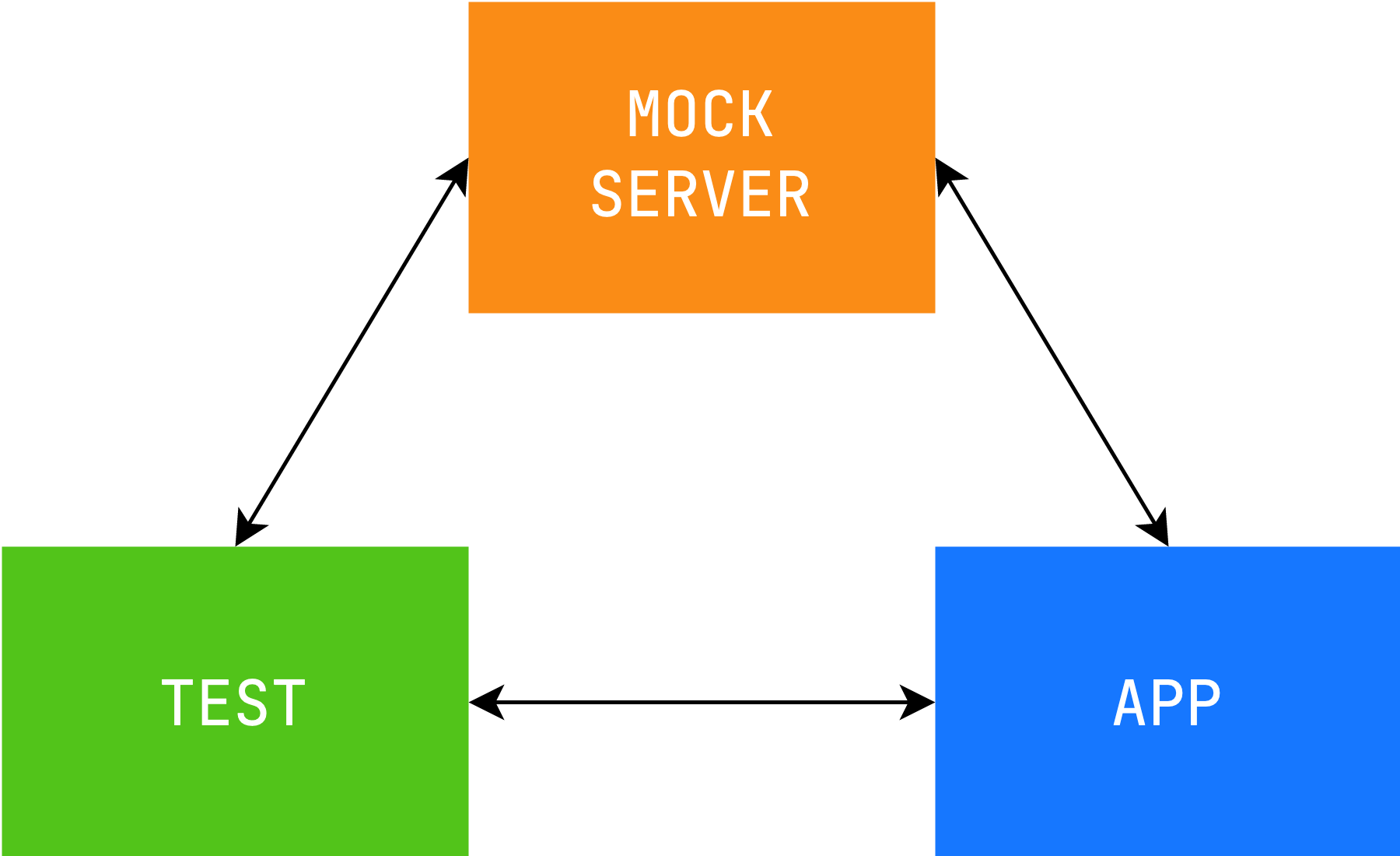Quick Start
JJ is a remote HTTP mock library that simulates HTTP responses for incoming requests. It allows you to define conditions for incoming HTTP requests and specify the responses that should be returned.
The library uses a client-server architecture, making it possible to run a server locally or deploy it somewhere remotely.

Starting the Server
Before creating mocks, you need to ensure the JJ server is up and running.
- CLI
- Docker
- Python
$ jj --port 8080
$ docker run -p 8080:80 ghcr.io/jj-mock/jj
import jj
from jj.mock import Mock
jj.serve(Mock(), port=8080)
Either of these methods will start the JJ server, ready to handle incoming mock requests at http://localhost:8080.
Writing Your First Mock
Once the server is running, you can define the matchers (rules) and responses that JJ should use. Here's an example:
- sync
- async
import sh
import jj
from jj.mock import mocked
def test_curl():
matcher = jj.match("GET", "/users")
response = jj.Response(status=200, json=[])
with mocked(matcher, response) as mock:
res = sh.curl("-s", "http://localhost:8080/users")
assert res == "[]"
import sh
import jj
from jj.mock import mocked
async def test_curl():
matcher = jj.match("GET", "/users")
response = jj.Response(status=200, json=[])
async with mocked(matcher, response) as mock:
res = sh.curl("-s", "http://localhost:8080/users")
assert res == "[]"
Breaking Down the Concepts
Let's delve deeper into the key elements.
1. Matcher
The Matcher is the cornerstone of any mock you set up. It specifies what conditions an incoming HTTP request must satisfy for the mock to be used.
matcher = jj.match("GET", "/users")
In this example, the matcher will look for HTTP GET requests aimed at the /users URL path. You can explore more matchers and their usage in the Matcher documentation.
2. Response
The Response object is what JJ returns when the conditions specified in the Matcher are met:
response = jj.Response(status=200, json=[])
In this example, when a match occurs, the server will return an HTTP 200 status code along with an empty JSON array as the response body. For more information on different types of responses, check out the Response documentation.
3. Remote Handler
In JJ, a remote handler is essentially a pair consisting of a matcher and a response. The mocked context manager takes care of registering this pair.
with mocked(matcher, response) as mock:
res = sh.curl("-s", "http://localhost:8080/users")
The mock is registered upon entering the with block and deregistered upon exiting it. This means it matches requests only within this block.
If you do not want the mock to be deregistered upon exiting the with block, you can use persistent mocks instead. Persistent mocks remain active until they are explicitly deregistered.
Flexibility in Deployment
Since JJ uses HTTP for client-server communication, it offers extreme flexibility in deployment options. You can run all the components — mock server, application under test, and test script — in a single process, separate threads, or even distribute them across multiple machines. This makes it a great fit for both small and large-scale testing environments.